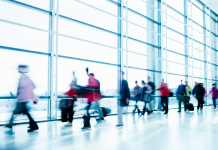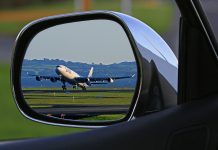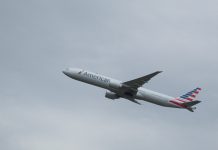
Singapore and Hong Kong will delay their bilateral travel bubble beyond 2020, according to authorities from both cities.
The decision of Singapore and Hong Kong comes after the latter reported a new spike of Covid-19 cases. Inaugural flights were supposed to begin on Nov. 22.
“Singapore and Hong Kong have further reviewed the COVID-19 situation in Hong Kong, and given that local unlinked cases are still high, both parties have decided to defer the commencement of the Singapore – Hong Kong Air Travel Bubble (ATB) to beyond December 2020,” the Civil Aviation Authority of Singapore (CAAS) said in a statement.
The Singapore aviation authority and the Hong Kong government stressed that they will assess the arrangement again in late December to determine a new start date.
New coronavirus cases in Hong Kong continued to soar. The city posted 76 additional cases on Monday, bringing its total number of cases to 6,315, official data showed.
On the other hand, Singapore seems to have managed its local outbreak, posting mostly imported infections in the last few weeks. Cumulative cases in the city hit 58,218 on Monday, according to its health ministry.
The Hong Kong-Singapore travel bubble was supposed to begin without the need for quarantines. Instead, tourists would undergo a Covid-19 test before departure. Hong Kong may also ask for a second test after arrival.
The coronavirus pandemic has hit tourism and aviation hard this year. Singapore and Hong Kong also do not cater to domestic air travel markets to manage the economic impact.
Singapore has opened its doors to tourists from countries that were able to manage the pandemic, such as New Zealand and Brunei.
Chan noted that Hong Kong is in talks with 10 other countries about arranging similar travel bubbles.
“For example, Thailand, Japan — these are the countries that we have more advanced discussions with,” he said, noting that the officials are working “very hard” to improve the network of air travel bubbles with several jurisdictions.
“At the same time, we’re working very hard with the mainland authorities to try to revive the traveling between Hong Kong and mainland because, business-wise, this is very important to speed up the recovery of our economy,” Chan said.
Hong Kong experienced a recession last year after months of anti-government protests, and the coronavirus outbreak gave the economy another blow.
When asked if Shenzhen could overtake Hong Kong, Chan pointed out that the financial hub has a “very unique competitive edge.”
Shenzhen marked its 40th year as a special economic zone last month and was granted the flexibility to implement reforms in some areas, according to Reuters.
Chan mentioned there is a “complementary cooperation” between Hong Kong and other Chinese cities.
“There are areas that we are highly competitive and leading the way, but there are also other areas we can work with the neighboring cities to achieve the maximum synergistic effect, for example, innovation and technology,” he said.
“The way we see it is, in this process, we need to work together to leverage the best outcome for everyone concerned,” he continued. “But on the other hand, in … sectors that we are doing well, we need to keep enhancing ourselves, making ourselves even more competitive and ahead of our competition.”






